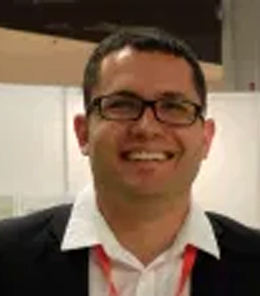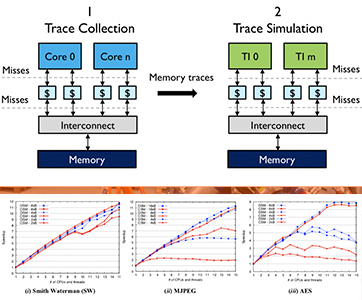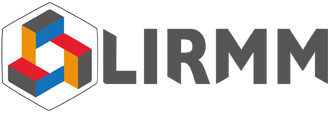

ADAC Team
ADAptive Computing

The ADAC (ADAptive Computing) team, whose mission is the design of adaptive systems and components capable of self-managing to optimize performance, conducts research on the exploration, simulation, and definition of innovative embedded hardware and software architectures, with a focus on the systems’ on-line adaptation to their environment. These strategies aim to optimize system performance in terms of energy efficiency, compliance with application constraints, safety or reliability. This work is based on integrated parallel (multi-core and multi-processor systems) or distributed (grids, sensor networks) computing and attempts to integrate the use of non-volatile emerging technologies such as magnetic memories (MRAM) with new properties.
Significant resources are committed to the definition of the various facets of adaptive systems such as measurement (sensors), data fusion/integration, online decision-making and actuation (task migration, among others). This work is contextualized in various application domains ranging from IoT to intensive computing and digital security.
Staff
Abdoulaye Gamatié, Directeur de recherche, CNRS
Florent Bruguier, Maître de conférences, UM
Gilles Sassatelli, Directeur de recherche, CNRS
Lionel Torres, Professeur des universités, UM
Pascal Benoit, Professeur des universités, UM
David Novo, Chargé de recherche, CNRS
Associates and Students
Mohammadali Zoroufchian, UM
Justin Chikhaoui, CNRS
Nassim Riadi, CNRS
Ismael Samaye, UM
Felipe Paiva Alencar, UM
Enzo Rafinesque, UM
Soraya Mobaraki, CNRS
Clement Brichart, CEA
Bruno Lovison Franco, UM
Gabriel Hautreux, CINES
Victor Cook, CNRS
Mohamed Watfa, CNRS
Regular Co-workers
Aymen Romdhane, Doctorant externe, CEA
Luis Bertran Alvarez, CDD Chercheur, CNRS
The ADAC group conducts research on 3 main scientific directions, as follows:
Topic 1 : Innovative hardware and software architectures
Energy efficiency has emerged as a prominent concern, driven by a broad range of societal and scientific challenges such as sustainability. The ADAC group focuses on the exploration of hardware, software and high-level resource management solutions for enabling significant advances towards the definition of next-generation compute systems. A specific emphasis on Adaptation is often put on various substrates such as highly constrained devices such as sensor nodes, and heterogeneous or homogeneous multicore / multiprocessor systems across various considerations (monitoring, migration of software objects). Online decision making is often key to achieving significant improvements and is also at the core of the motivations (s.a. modeling, forecasting, decision making). Targeted systems comprise a large set of applications from the Internet of Things to compute clusters, notably with several projects tackling adaptation at a wider than usual scope, encompassing energy transfer and storage across compute nodes, or optimization of resource management in a network of connected devices.
Topic 2 : Technology integration
The ADAC group conducts research in the area of technology hybridization, notably on the exploitation of non-volatile emerging memory technologies. Projects include the use of MRAM memories in various flavours of compute systems ranging from ultra-low energy microcontrollers for IoT to high-performance compute nodes. Contributions include CMOS/MRAM hybrid-cells, compilation/scheduling techniques alongside novel approaches at microarchitecture-level (caches, Normally-off Computing), communication-level (technology-aware NoCs) or technology-level (FPGA, PVT sensing, data-mining and design of compact models for run-time power / energy / temperature estimation).Topic 3: Security
Research works are also carried out in the area of security at various levels, with a notable emphasis on embedded systems (secure on-chip communications), IoT (blockchains for IoT devices) and industrial networks. A strong expertise of side-channel attacks (SCA) is also at the core of an open platform devoted to research and education (SECNUM) within the scope of the CNFM education network.ANR ADEQUATE-DL
Approximating Deep Learning Accelerators
PRC
ANR – AAPG2018 – CE23 Données, Connaissances, Big data, Contenus multimédias, Intelligence Artificielle
Sécurité au niveau des micro-architectures
Non Volatile MRAM-based Asynchronous PROCessor
Repenser la simulation d’architecture des ordinateurs accélérée sur FPGA pour l’exploration de stockage des données
Heterogeneous memory systems with emerging non-volatile technologies
Architecture distribuée de passerelles réseaux interopérables et collaborative
The influence of ADAC team members can be characterized with the following outreach activities over the 2013-2016 period:
Evaluation / Expertise
Membership: ANR Evaluation Committee for Micro and Nanotechnology Challenges
- Membership: ANR Scientific Committee for Nanoscience and Communication Science
- Active participation in several prospective workgroups
- The Croucher Foundation – independent private foundation dedicated to research, Hong-Kong
Public Relations and Scientific Events
- Organizing the BRAFITEC 2016 (Franco-Brasilian) Colloquium
- Creating the RECOSOC Workshop RECOSOC, organizing the 2011 et 2014 editions
- Steering Committee Memberships: IEEE FPL, RECOSOC, IEEE ISVLSI, CRYPTARCHI, IEEE NVMSA,
- Working Group IFIP 10: Design and Engineering of Electronic Systems
- Associate Editor : IEEE Transactions on Computer-Aided Design of Integrated Circuits and Systems
- Program Committee Memberships for main Adaptive Computing Conferences
- IMEC, Interuniversity Microelectronics Centre, Belgium
- Brême University, Germany
- ETH Zurich, Swiss Federal Institute of Technology in Zurich, Suisse
- NAU, Northern Arizona University, USAYale University, USA
- Universidade Federal de Minas Gerais et Universidade Federal da Bahia, Brésil
- Université de Pittsburg, USA
- Université d’Oran, Algérie
- Université d’Aalborg, Danemark
Title: Analyse et Modélisation de Réseaux d’Interconnexion Cohérent Puce-à-Puce
PhD defendant: Luis Bertran Alvarez
Defense date: 2025-03-27
Thesis directors:
Pascal Benoit,
David Novo
Title: Etude de la résistance aux attaques par canaux auxiliaires dimplémentations de primitives cryptographiques basées sur les réseaux euclidiens pour la cryptographie post-quantique
PhD defendant: Rafael Carrera Rodriguez
Defense date: 2024-11-25
Thesis director:
Pascal Benoit
Title: Techniques Avancées D’analyse De Performance Pour Évaluer L’efficacité Des Accélérateurs Graphiques Pour Les Applications D’apprentissage Automatique
PhD defendant: Paul Delestrac
Defense date: 2024-09-17
Thesis directors:
David Novo,
Lionel Torres
Title: Développement et évaluation de solutions de protections des DRAM et MRAM contre l’attaque Rowhammer
PhD defendant: Loic France
Defense date: 2022-12-16
Thesis director:
Pascal Benoit
Title: Exploration des architectures de mémoire des microcontrôleurs pour le calcul intermittent embarqué
PhD defendant: Theo Soriano
Defense date: 2022-12-15
Thesis director:
Pascal Benoit
Title: Simulation précise du mouvement des données au sein des systèmes mobiles multicurs modernes
PhD defendant: Quentin Huppert
Defense date: 2022-12-06
Thesis director:
Lionel Torres
Title: Étude d’architectures dédiées aux systèmes embarqués intelligents et efficaces en énergie
PhD defendant: Guillaume Devic
Defense date: 2021-12-03
Thesis directors:
Gilles Sassatelli,
Abdoulaye Gamatié
Title: Exploration des solutions de reconfiguration dynamique pour améliorer la fiabilité des micro-réseaux à courant continu
PhD defendant: Francesco Di Gregorio
Defense date: 2021-11-19
Thesis directors:
Gilles Sassatelli,
Abdoulaye Gamatié
Title: Techniques dapprentissage pour le contrôle adaptatif multi-niveaux du calcul distribué
PhD defendant: Maxime Mirka
Defense date: 2021-11-12
Thesis directors:
Abdoulaye Gamatié,
Gilles Sassatelli
Title: Effets des radiations de lenvironnement spatial sur les mémoires spintroniques
PhD defendant: Odilia Coi
Defense date: 2021-10-14
Thesis director:
Lionel Torres
Title: Étude et conception de méthodes de protection face aux attaques par corruption de mémoire pour systèmes embarqués dans le contexte de l’Internet des Objets.
PhD defendant: Yohan Boyer
Defense date: 2020-12-17
Thesis director:
Pascal Benoit
Title: De la vulnérabilité des nuds capteur à la certification des transactions sur le réseau, une approche de la sécurisation de lInternet des Objets.
PhD defendant: Loïc Dalmasso
Defense date: 2020-12-15
Thesis director:
Pascal Benoit
Title: Primitives de sécurité à base de mémoires magnétiques
PhD defendant: Frederic Ouattara
Defense date: 2020-11-06
Thesis director:
Lionel Torres
Title: Systèmes intégrés adaptatifs ultra basse consommation pour lInternet des Objets
PhD defendant: Guillaume Patrigeon
Defense date: 2020-07-16
Thesis director:
Pascal Benoit
Title: Étude et conception de mécanismes de rupture et de filtrage de protocoles industriels
PhD defendant: Peter Rouget
Defense date: 2019-08-29
Thesis directors:
Pascal Benoit,
Lionel Torres
Title: Intégration de technologies de mémoires non volatiles émergentes dans la hiérarchie de caches pour améliorer l’efficacité énergétique
PhD defendant: Pierre-Yves Péneau
Defense date: 2018-10-31
Thesis directors:
Gilles Sassatelli,
Abdoulaye Gamatié
Title: Investigation des techniques de surveillance pour les systèmes intégrés auto-adaptatifs
PhD defendant: Mohamad El Ahmad
Defense date: 2018-10-18
Thesis directors:
Pascal Benoit,
Gilles Sassatelli
Title: Exploration de systèmes multicoeurs basés sur des réseaux de communication intégrés sur silicium
PhD defendant: Charles Effiong
Defense date: 2017-11-16
Thesis directors:
Gilles Sassatelli,
Abdoulaye Gamatié
Title: Réseau sur puce sécurisé pour applications cryptographiques sur FPGA
PhD defendant: Rémy Druyer
Defense date: 2017-10-26
Thesis directors:
Pascal Benoit,
Lionel Torres
Title: Conception de Circuit Intégré Innovant GALS (Globally Asynchronous Locally Synchronous) Non-Volatile pour Application Spatiale
PhD defendant: Jeremy Lopes
Defense date: 2017-09-18
Thesis director:
Lionel Torres
Title: Hardware and Software Prototyping of a Miniature Star Tracker System for a Nano-Satellite
PhD defendant: Andrey Khorev
Defense date: 2016-12-13
Thesis director:
Lionel Torres
We are always looking for highly qualified and motivated students and researchers. Feel free to apply.






